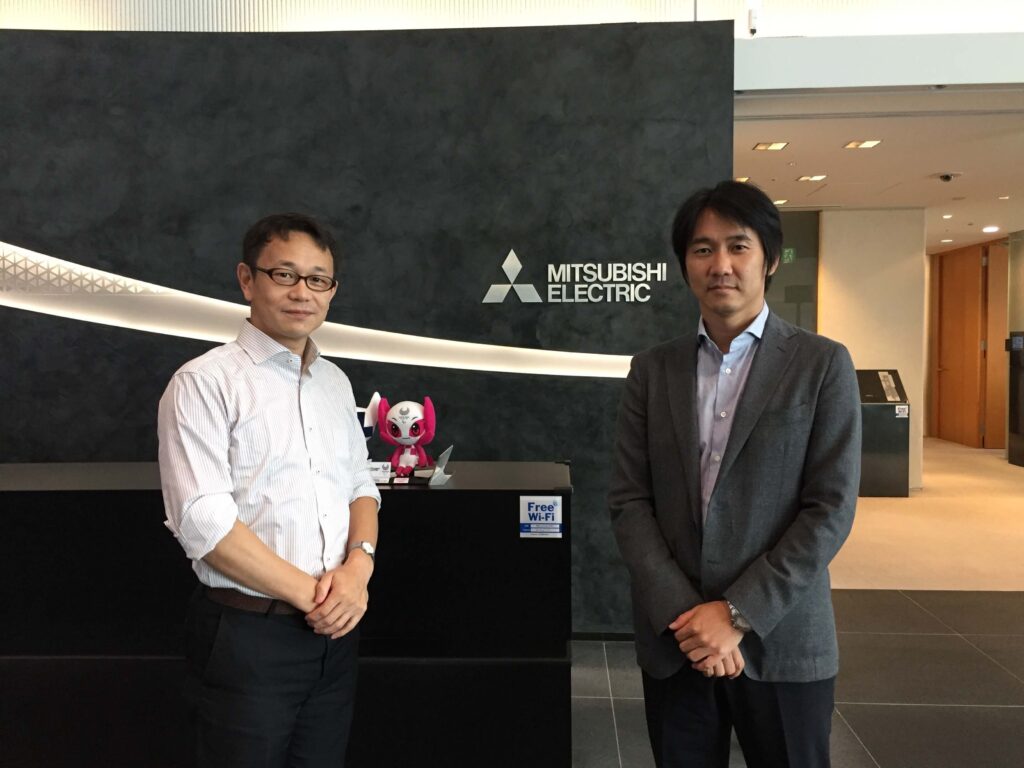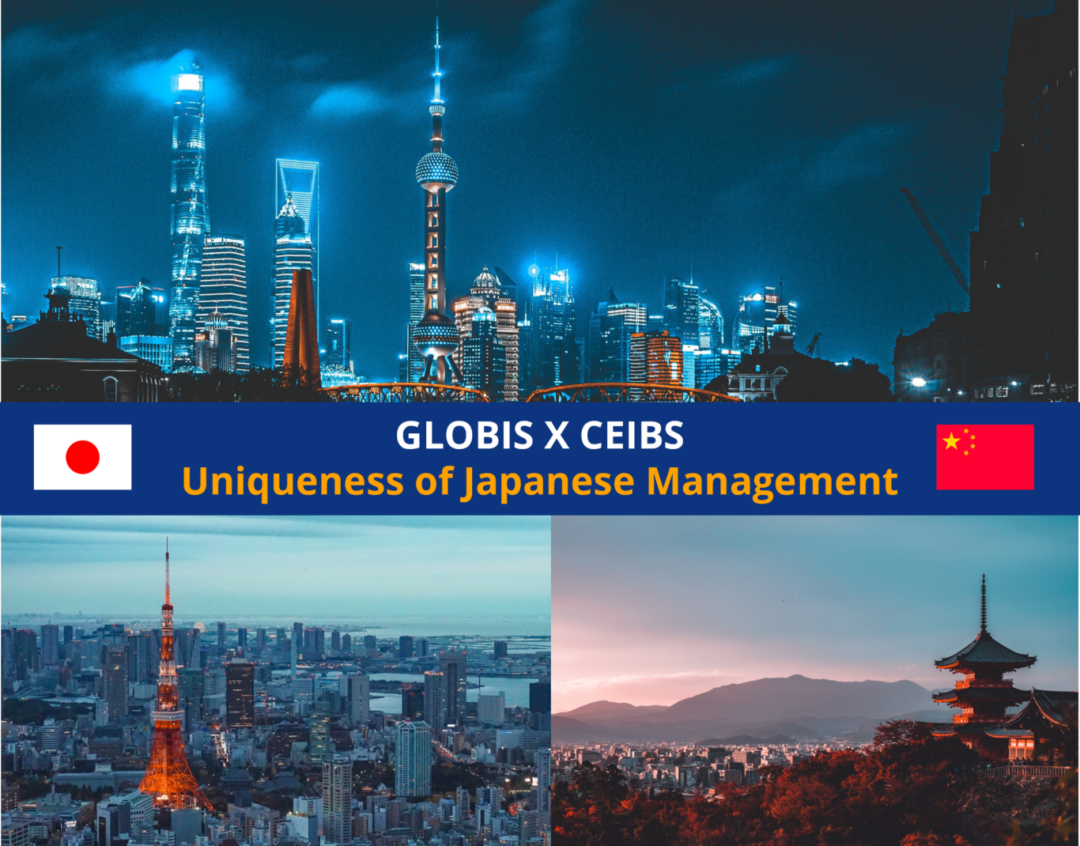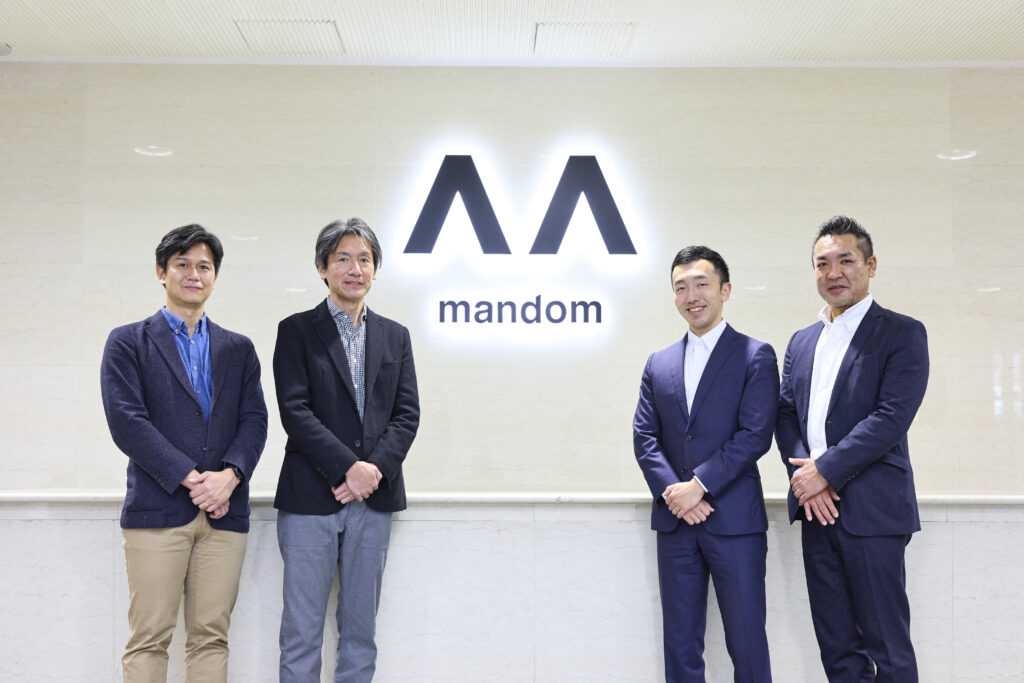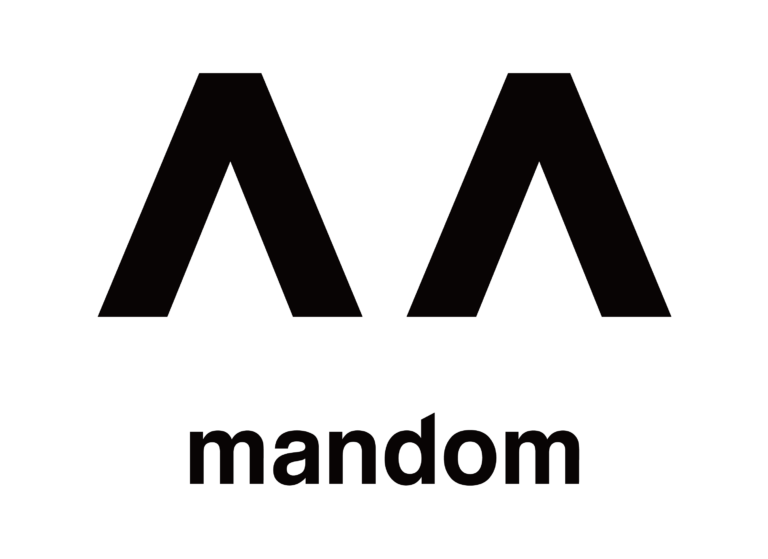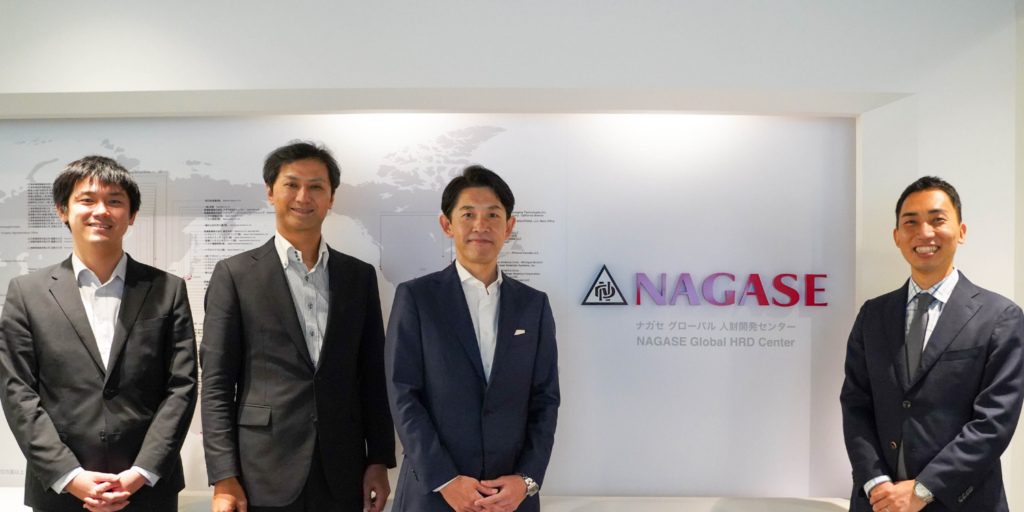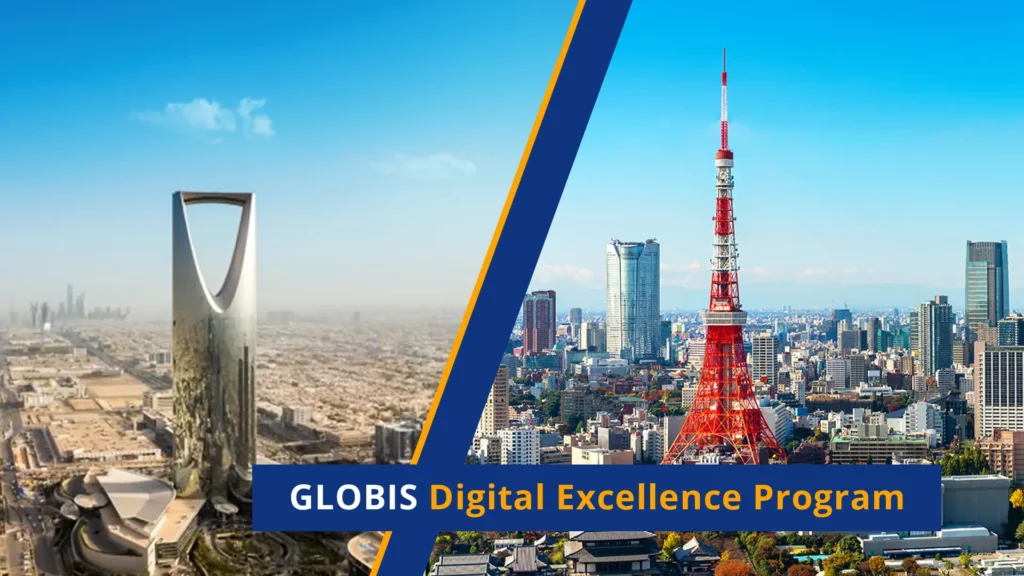Randstad Japan

Transformation Program
Organizational transformation can’t wait until disaster strikes. Randstad, the global leader in the HR services industry, has implemented their Transformation Program for the past four years, all with the goal of developing local leaders into more strategically minded, proactive, and innovative ones.
To learn more about the project, Randstad Japan’s need for organizational transformation, and GLOBIS’ contributions, Iulia Tucma and Hideo Nakashima from GLOBIS spoke with:
- Mr. Jos Schut (CHRO of Randstad, Japan and APAC)
- Mr. Ken Nihei (Director, Randstad Japan / Staffing / SPOT Division / Examination), as alumni of the Transformation Program
- Mr. Tomoki Osabe (Area Manager, Randstad Japan / Staffing / Metro 2 / Kanagawa Area), as alumni of the Transformation Program
▸Randstad Japan
https://www.randstad.com/ (Global) / https://www.randstad.co.jp/ (Japanese)
1. Background
lulia Tucma: Please tell us a bit about the background of the program implementation and how it all started, including the positioning of the program within Randstad Japan and the initial organizational issues that led to it.
Jos Schut: Well, it started about four years ago. As a global company, everyone knows that if you want to transform, you have to make sure that you’re moving forward and changing before you see the need to change.
Because we had been doing well for many years, the risk is that you don’t see the need for change because you’re performing well. But we knew that if you wait until you’re no longer performing well, you’re too late.
We realized we needed something to create awareness about transformation and what that means. How you lead to change, the impact of it, and also how you experiment, and learn in different ways.
We started exploring the market for a local partner to help create a program. We talked to different parties, and GLOBIS was one of them. We looked for a partner who was also able to co-create, to develop a program that could be tailor-made for our people. This was a critical component when choosing the partner. And that’s where GLOBIS stood out from the others, with their willingness to work with us as a co-creator.
lulia Tucma: Did your needs start on a global or local scale?
Jos Schut: The needs started from a global perspective. But when you look at Japan from a global perspective, at the senior level, we see that the transformation does not come automatically in Japan. Change is something people can be a bit anxious about. We know it needs more attention than in some other cultures. That’s why we decided to have this locally done.
lulia Tucma: So it was a choice of criteria to choose a partner that already knows the market? And the issues in the market as well?
Jos Schut: Yes, and that would also have faculty members who can deliver in Japanese, but at the same time able to also look at it from the view of a multinational company.

2. Program Goals
lulia Tucma: Can you tell us a bit about the goal of the program, and your opinion about the design, operations, and expectations about action learning?
Jos Schut: The expectation in the program is that we wanted to make people who are in managerial leadership positions aware about what it is to lead change and transformation. To do that, we needed to start with what the strategy means and why we decided on a certain direction. So, the strategy part of the program is an important one, also connected again to global company strategy. Hence, the connection with local leaders is vital to the program.
It was also important to learn more about finance, to learn more about customer experience and customer-centricity, all of which can be part of the leadership umbrella.
Another expectation was around the idea of working on real world topics, which we believed would be a superior way to instill new knowledge rather than just sitting in a classroom. Action learning is working on a topic and seeing its full potential. And then asking yourself, “Okay, how far can I take it?”, “What should I do?”, “How do you build a business case?”, “How do you explore market opportunities?”.
lulia Tucma: Let’s talk about action learning. I wonder how it went from the goal of applying the learnings of the program to actually implementing those business ideas?
Jos Schut: Of course, in the first programs, we only had that thought process of an idea, but then we added the business case to it. And at the end of the quarter, some great ideas have been taken through then later on implemented, which is excellent. That was a great outcome. We want people to have that experience and learn how you create and translate a thought, a creative idea, into a meaningful solution.
But again, implementing business ideas was not the overarching goal of the program, but a great byproduct. The goal is still the development of the participants.
lulia Tucma: Did you have any concerns at the beginning and if yes, how were they tackled?
Jos Schut: We had to do this program during a very challenging period with COVID. We had to make sure that we created the best experience possible in a remote online environment.

3. Results and Future Prospects
lulia Tucma: After the program, what changes did you notice regarding the participants’ awareness, skills, behavior, in your organization?
Jos Schut: Now we see that people are more exposed to and aware of the ideas behind transformation. We do roadshows within the company twice a year, and leadership visits to branches to talk about the new strategy. We have seen a significant change in those who joined the program in their willingness to ask questions. It is something which, at least in the Japanese culture, it’s not natural. In the past, we would not get much interaction, only nodding and agreeing. And now we see the quality of questions coming back to the leadership team in meetings is increasing and improving. We noticed they’ve learned something from a content perspective.
Also, some of those participants have earned promotions, not only because of the program, but it did contribute to their readiness.
lulia Tucma: Did you notice changes in the organization?
Jos Schut: Yes, we had constant growth last year. It’s all combined in the end, and the outcome is probably due to many factors. However, this program has definitely contributed to it.
lulia Tucma: During this program, there were a lot of other internal tools that were helping the program as well, including the 360 Individual Development program. Can you speak on that?
Jos Schut: Getting our own leaders speaking to the participants and then the Globis faculty was very effective. It’s good that you have faculty who can do that translation and help them understand the background around it.
And even if you have a really good faculty, sometimes participants don’t know how something works in practice. Take finance, for instance. We taught that in the past and participants couldn’t immediately get the connection to how our finances worked. So, it’s important to have our CFO there explaining. That’s why we believe in co-creation.
lulia Tucma: You already mentioned what was important to you in selecting a partner. You mentioned tailor-made, co-creation and a local company that knows the Japanese language and markets, both locally and globally. Can you tell us a bit more about how GLOBIS contributed? How would you evaluate GLOBIS, and what is your general impression of us?
Jos Schut: The combination of the content you bring with the people who represent you. All of it. I felt like we were in this together from the beginning until the end. GLOBIS did a great job at truly listening and trying to understand us. That was so important and GLOBIS delivered consistently.
lulia Tucma: Do you have any ideas on how you would want the program to evolve in the future?
Jos Schut: First, we must get everyone to the level of awareness that transformation is something good. It’s something to feel comfortable about. It allows every participant to be curious, courageous, and open to learning and not act only in a way you think is expected.
Sometimes in Japan, people create their boundaries more than in other countries because they think that’s what’s expected from them, saying, “I think my manager does not expect me to have an opinion.” On the contrary, we want them to have opinions and new ideas.
From a content perspective, regarding your faculty, I’m comfortable. I’ve seen your faculty members. They have good content, know how to deliver it, and are used to working with our leaders. Now it’s about the courage for our people to allow themselves to accept what we’re teaching. The next step is to allow themselves to have a bit more freedom – this will be the next level.
lulia Tucma: What new organizational human resource issues have come to light?
Jos Schut: One issue that came to light was that we still need strong female leaders. We still struggle in parts of the country, even attracting them, as well as with returning young mothers from maternity leave.
We know this is also a big societal theme, so I’m not naive to think we can solve it easily. But by doing this program and raising awareness, we constantly look for a good balance and develop female talent with even more attention than anywhere else. That’s a constant topic for us to ensure that we are a company providing opportunities and bringing out the best in everyone.
It’s continually evolving, but it’s an important topic to focus on.
lulia Tucma: What would Randstad Japan consider to implement from now, not limited to this program?
Jos Schut: Of course, we have a growth ambition. So we want to grow the business further, which means that we need leaders with that ambition who can drive the transformation to drive growth.
And at the same time to be able to lead teams. And for that, empathy is very important, making sure that you bring out the best. So we talk about making sure that people are at their best, which could be different for you than for me. So that means that you have to be intrinsically curious about the other person you lead, about each and every person individually, and how you can maximize the opportunities and potential of the person.
lulia Tucma: I would like to hear your opinion about expectations from GLOBIS’s contribution as an HR development partner.
Jos Schut: My expectation for GLOBIS as a partner is to keep up to speed with what’s happening in the wider market with us. We’re always happy to have additional conversations or meetings, even with our CEO, to ensure that you and your faculty are informed.
We expect improvements on topics like we just discussed, such as unconscious bias. That’s something I know you do. And another expectation is to constantly be looking into what we can do better, and continuously have our learning cycle; both the co-creating betterment of the program, GLOBIS and Randstad. Are we still doing it the right way? Is it still working? What should we do? Let’s also be critical of ourselves. Do we need to adjust it here, or do we need to bring this in? Let’s constantly keep challenging ourselves.

4. Final Thoughts
lulia Tucma: Thank you very much. Finally, do you have any additional comments for us?
Jos Schut: I think the fact that we are now already in the fifth group – the 4th Transformation Program and 5th if we count the leadership team initiative as well – shows that, in general, we are a satisfied customer because otherwise, we would not have continued our relationship.
We appreciate that your faculty, including yourself, are also interested in what keeps the business going and drives people to join. And I think that is something you should value as a business school and hopefully have other customers as well whom you can create similar programs with because that’s where you differentiate yourself in the market: not having the standard in a way what we call push product, but really co-create a customized program as a team.

Transformation Program – Alumni Interview
- Mr. Ken Nihei (Director • Randstad Japan / Staffing / SPOT Division / Examination)
- Mr. Tomoki Osabe (Area Manager • Randstad Japan / Staffing / Metro 2 / Kanagawa Area)
1. Program Impressions
Hideo Nakashima: Now that you have completed the entire program, what are your impressions?
Ken Nihei: My first impression was that it was very disappointing that everything was online. It would have been more exciting if it could have been face-to-face. It was such an exceptional and wonderful opportunity. I am happy that what we have been thinking about through the Transformation Program (TP) has finally been recognized by the company and is now starting to make an impact.
Tomoki Osabe: I have received a variety of training so far, but I can honestly say that it has been the most beneficial. For example, we now have a common language among Randstad employees. Previously, we had given up communicating with each other because our business units were independent and we were in different situations. Now I feel that we are all colleagues. Perhaps it is a byproduct of the program, but the increase in human networks and a common language has made communication within the company smoother.
2. Personal Changes
Hideo Nakashima: What specific changes have you seen in yourself through the program?
Ken Nihei: The first thing that comes to mind is that my thinking was narrow. For example, when I was told to “think of business opportunities,” I was limited to considering only the possibilities within my division’s business type. However, participating in TP introduced me to various participants from different divisions, which allowed me to discover new business opportunities in unexpected places.
Tomoki Osabe: In TP, we were repeatedly told to hold the ‘issue’. As a result, I asked myself, “What are the issues we need to work on now? Where do I start?” I began identifying the issues I need to work on now.
3. Action Learning and Creating New Business
Hideo Nakashima: One of the features of the TP is action learning, in which participants formed teams and worked together to develop new business strategies for Randstad. Please tell us as much as possible about that aspect of the program.
Ken Nihei: My team worked on business proposals related to single and daily workers. For example, many talented women have retired due to marriage, childbirth or child-rearing. ‘Can we create job opportunities for such talented and motivated people?’ This was triggered by a topic during a team discussion when one member’s wife was looking for a job. From there, we turned it into a concrete business plan.
Hideo Nakashima: So the business idea was born out of an awareness of familiar issues.
TP offers several sessions on management/ business skills. How did these help you in coming up with the actual business plan?
Ken Nihei: The persona concept and other things I learned in marketing and design thinking were helpful. We set a specific target customer image as ‘women who are raising children and actually want to work’ and simulated in detail what needs they have.
Hideo Nakashima: Do you think that acquiring business skills through TP training was still beneficial for professional people like you?
Ken Nihei: Yes, it is. Although we considered ourselves experts in human resources, a deeper analysis of the market utilizing fundamental business principles revealed a new insight. There were potential business opportunities that we could explore.
Hideo Nakashima: Managing practical tasks while developing new projects in TP must have been a challenge. How did you manage your time?
Ken Nihei: I made a conscious effort to create time. I decided that I would efficiently work on my 8-hour workday and make it 6 hours, and always spend this extra time in the morning for TP. It was hard work, but I could feel the significance of the business idea, so I made time for it. Also, since we were working as a team, I wanted to ensure that the other members were comfortable.
Hideo Nakashima: You finally presented your new business plan to the management team. What was the most important aspect you focused on?
Ken Nihei: We were focused on the fact that many talented people were motivated but did not have the opportunity to work and also take care of their family. That’s why we were determined to make it a successful business. However, looking back, we may have been too focused on creating business results. It might have been more interesting for management if we had come up with more unexpected ideas.
Hideo Nakashima: What specific feedback did you receive from management? What feedback, if any, has made a lasting impression on you?
Ken Nihei: We were delighted to hear the words of appreciation: “Thank you for using your precious time to develop it so well and present it to us.” Five teams presented their TPs, and all groups were listened to fairly, but our idea was the first to be adopted.
During the discussion with the management team, I was also happy that one of the board members strongly commented that we should definitely do this.
Hideo Nakashima: What is your proposed business plan now?
Ken Nihei: We are currently working on an ongoing basis. For example, we are working on making schemes to provide human resources to business areas that will attempt to launch vertically in the future.

Hideo Nakashima: I would like to ask Mr. Osabe next. What themes did you tackle and how?
Tomoki Osabe: Our group chose the agricultural sector as our theme. There are many challenges in agriculture, such as the aging of the population, but we decided that there are issues that we, as Randstad, can solve.
I think it also resulted from concentrating on “what we wanted to do and what we thought we should do”. However, we were not able to immediately identify the target segment.
First, we conducted extensive research into the agricultural sector and analyzed the challenges and business opportunities for Randstad. In the process, we realized that, for example, there are issues and initiatives in this area in the northern Kanto region and that other companies are progressing in Kyushu.
Using the results of this analysis, we discussed such ideas as “If we target certain distribution process issues in a certain region, how can we move Randstad’s domestic offices to make this a nationwide business?”
Hideo Nakashima: As Mr. Nihei mentioned earlier, from what I hear, you have a strong desire to help the world. Is this the culture of your company?
Tomoki Osabe: Indeed, we believe there is no resistance to setting up new businesses. And the members who participated in the TP understood the significance of the TP. In the first place, our members wanted to produce meaningful deliverables because we would spend a long time on the program.
Hideo Nakashima: It is great that you recognize TP as a management activity that creates new growth for Randstad rather than just attending a training course. What were the key points that you focused on in your presentation?
Tomoki Osabe: I insisted that the proposal’s final objective was not simply to create a business plan. We recruited members interested in the agricultural sector and met monthly to share the unique challenges and examples of initiatives in the areas under their jurisdiction. Under the larger business strategy, our members worked out how to produce results in our respective regions.
A key point in the business was how to involve farmers and other stakeholders. An executive advised us to speak to people whose parents were in farming. My family happens to have farmers, so I went to my parent’s house and made a video to recruit supporters for the farmers and spread the word.
Hideo Nakashima: What specific feedback did you receive from management?
Tomoki Osabe: Management gave us some advice on goal setting. As mentioned, we started by focusing on a specific distribution process in a particular region and proposed it as a small step. In response, management commented that our dream needed to be bigger.
They said, ‘Let’s make this a project that will be a great treasure not only in the immediate future but also over five to ten years’. Based on the feedback, we discussed what steps we should take to expand the project. After the presentation to management, we continued to refine the project, and in the end, the project’s scope became much broader.
Hideo Nakashima: What is the current status of the business plan?
Tomoki Osabe: We share this information internally, discussing it at our monthly meetings. A community has developed within the company, and an exchange of ideas are taking place among employees without our intervention. We have also received requests from our customers, and we are working to make it happen.

4. Lessons Learned
Hideo Nakashima: Let me ask you both, what have you learned from your discussions with management?
Ken Nihei: Paul, the CEO, has always asked about the importance of WHY on a daily basis, but after the TP, I got into the habit of digging even deeper into WHY. I think that WHY has started to come up in my daily work. I think WHY, as a thought, is essential. In my case, it is also about checking the logic.
Tomoki Osabe: We have learned that the management team has a view that we cannot see.
We tend to be local and lower the bar when trying to achieve results. However, when we have conversations with management, they tell us to keep our perspective high. In our discussions with management, we have experienced that the view we see from the field can be completely different when we have a higher perspective.

5. Future Outlook & Opportunities
Hideo Nakashima: What does your TP experience mean for your career? And what does it mean for the management of Randstad?
Ken Nihei: Firstly, for me as an individual, it was the best training program I have ever undergone. When I talk with my peers and past graduates who took the program, I can say, “This is what I learnt at TP,” which is very useful for my work.
The power of GLOBIS lecturers’ messages and inspiration is also significant. I look back at the materials and think, “I remember what they said at that time”.
Next, touching upon the implications for the company, I would like more employees to take the course. Some people indeed felt like they were forced to do it at first, but I think a sense of ownership as a leader will emerge through repeated learning and discussion. If we have more employees like this, the conversations within the organization will definitely change, and I think it will even change the culture.
Tomoki Osabe: It has given me many opportunities for input for growth. I also discovered that many members share the same thoughts and perspectives, and a community has been formed. It has been positive for my career, increasing my expectations and possibilities for the organization.
The implication for the company is that while working on these new business idea proposals, we can see people who stand out or take the initiative in promoting things. In this way, it is a plus for management to notice what makes employees sparkle and to know who can take leadership.
5. Final Thoughts & Suggestions
Hideo Nakashima: Apart from TP, do you have any suggestions for Randstad regarding organization/ human resources?
Ken Nihei: We were new graduates joining the company, so we could have the opportunity to learn more about and be exposed to the outside world. I think it is extremely valuable to interact, discuss, learn and work on something with people from other industries and other companies.
Tomoki Osabe: I am glad to see more meaningful training programs like TP, but I think the company also needs to work on skill maps and visualization of human resources. Doing so would allow the company to utilize human resources more effectively. It may take a long time, but the organization will become even stronger if there is a mechanism to visualize and use its talents in addition to repeating training programs.

